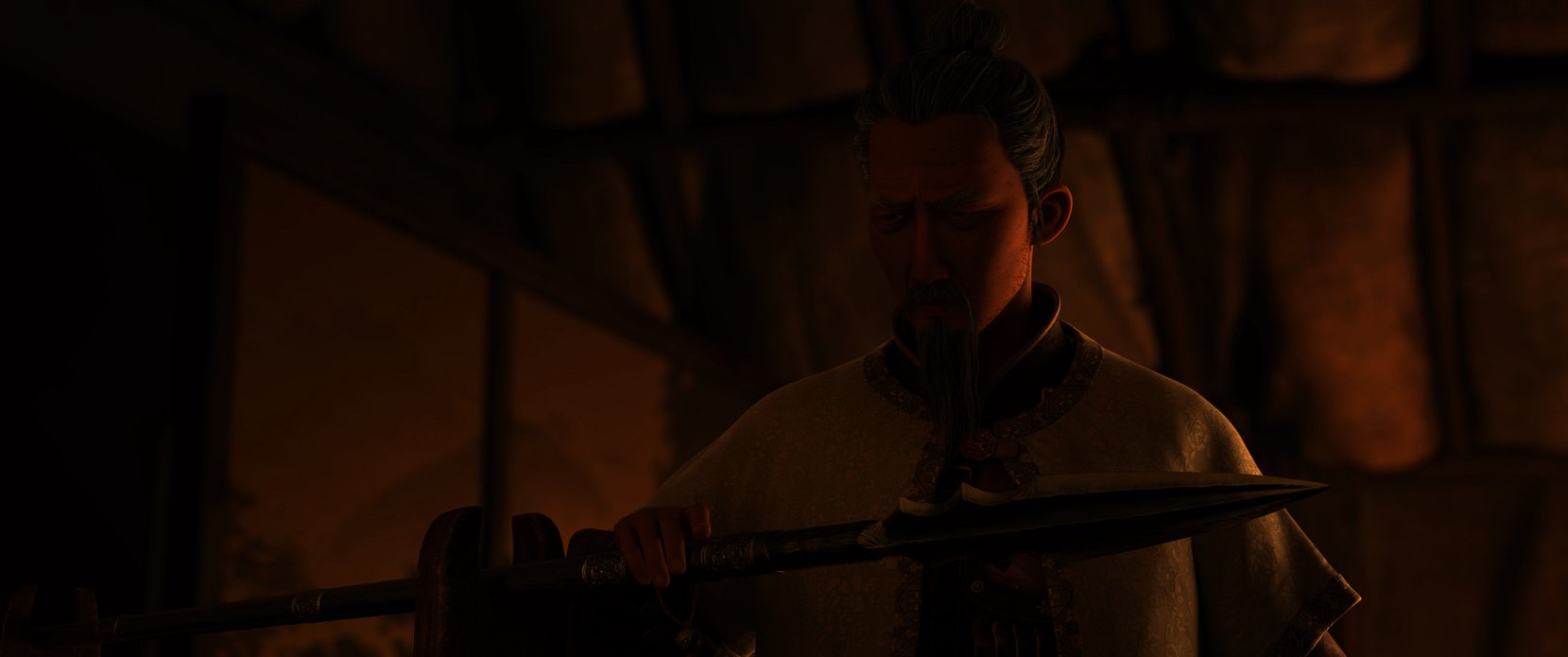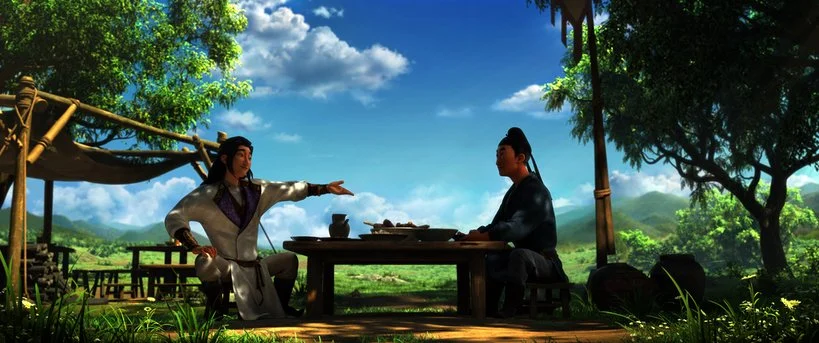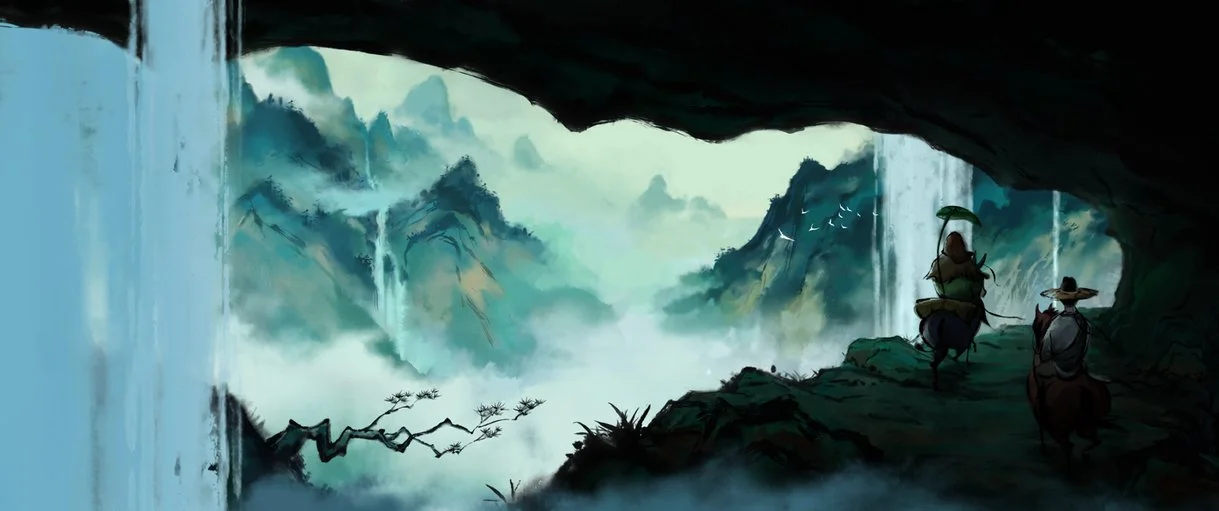Ode to Odes
China’s second animated blockbuster spins an epic yarn about rebellion, the art of the spear and… Poetry?
Chang An
Directors: Xie Junwei, Zou Jing • Writer: Ironically, no one’s credited
Starring: Wu Junquan, Yang Tianxiang, Ling Zhenhe, Xuan Xiaoming, Lu Lifeng, Sun Lulu, Ba He
China • 2hrs 48mins
Opens Hong Kong August 31 • IIA
Grade: B
There’s a lot of wisdom behind the idea of making a decades-spanning historical epic an animated film. Pricey locations that have to be recreated are cheaper, filmmakers can take all sorts of dramatic license, and when your main characters age from their mid-twenties to their seventies, recasting or, gulp, old man make-up are taken out of the equation. It’s also a good way to get to kids who might otherwise brush off the dense legacy of Tang Dynasty poets for a new video game. So not only does Chang An | 長安三萬里 mix art, literary and military histories in one broad, ambitious tapestry, it does so fairly well. Better still, Chang An is Tang Poetry 101 for anyone who’s clueless about the form married to a portrait of male friendship.
Currently ranked #2 on China’s highest grossing animated feature list (way, way behind 2019’s Ne Zha), Chang An is more highly stylised DreamWorks (tiny feet, disproportionate upper bodies, exaggerated expression, etc) than photorealistic Pixar in its sweeping saga about Gao Shi (Yang Tianxiang, Wu Junquan as an older man) and Li Bai (Ling Zhenhe, Xuan Xiaoming, ditto) who meet on the road one day, stop a couple of thieves and become lifelong friends as their paths criss-cross in and out of the Tang capital of Chang’An (it’s Xian now). In between, Gao becomes the Tang’s pre-eminent warrior-poet and Li becomes its most celebrated literary figure, albeit one with a raging drinking problem.
We start with Gao as a Tang army general embroiled in the Anshi Rebellion. Holed up in a snowy mountain town with the rebel Tubo army breathing down his neck, Gao appears to be on the Emperor’s shit list. Into the camp comes imperial inquisitor Cheng Jianjun (Lu Lifeng) with some questions, which prompts Gao to cut his own throat. Even though he’s near death, Cheng, oddly, asks after his old friend Li, and Gao starts a recount of their story. In flashback, they meet as young men striking out on their own to better their stations (supposedly they actually met in middle age but, pffft, movies). Gao is adept with a spear, Li is an ace wrestler, so they trade skills and become pals. As they reappear in each other’s lives every decade or so, politics and power ebb and flow, the more dependable Gao earns a spot in the military, and the carefree gadabout Li falls in with a cohort of Tang poetry giants: Du Fu, Wang Wei, Meng Haoran. Cheng is there because Li’s loyalty – and so Gao’s – is in question at a sensitive time. Everything works out though.
Chang An stumbles over its own storytelling on a few occasions, crucially in failing to make us understand the bond between the two men. Why does the responsible, restrained Gao put up with Li’s reckless, freewheeling tendencies at every turn? Time doesn’t equal depth. But the biggest hiccough is the most basic (spoiler?): Why Gao feels the need to pull a ruse with Cheng, and why Cheng buries the Li lede are mystifying. The light cloak and dagger action does nothing to help the story and could easily have been jettisoned entirely – along with a good 20 minutes of fat. For kids, the three-hour running time is egregious.
That said, the nearly 50 poems woven into the story and dialogue, and the classic paintings used as shorthand for major events add a seamless creative texture to Chang An that’s also enlightening for the uninitiated (interest in Tang poetry in China is supposedly booming). Notable places – Yellow Crane Tower and its poetry salon (they had these?), Qujiang Pond, Liang Garden – are graceful and colourful, and Chang’An itself is rendered spectacularly. It looks way more fun than Beijing. First time directors Xie Junwei and Zou Jing play just fast and loose enough with history to keep the action moving and make Gao’s assault on the Tubo army that ends the film worthy of a fist-pump. A little, poetical pump. — DEK



